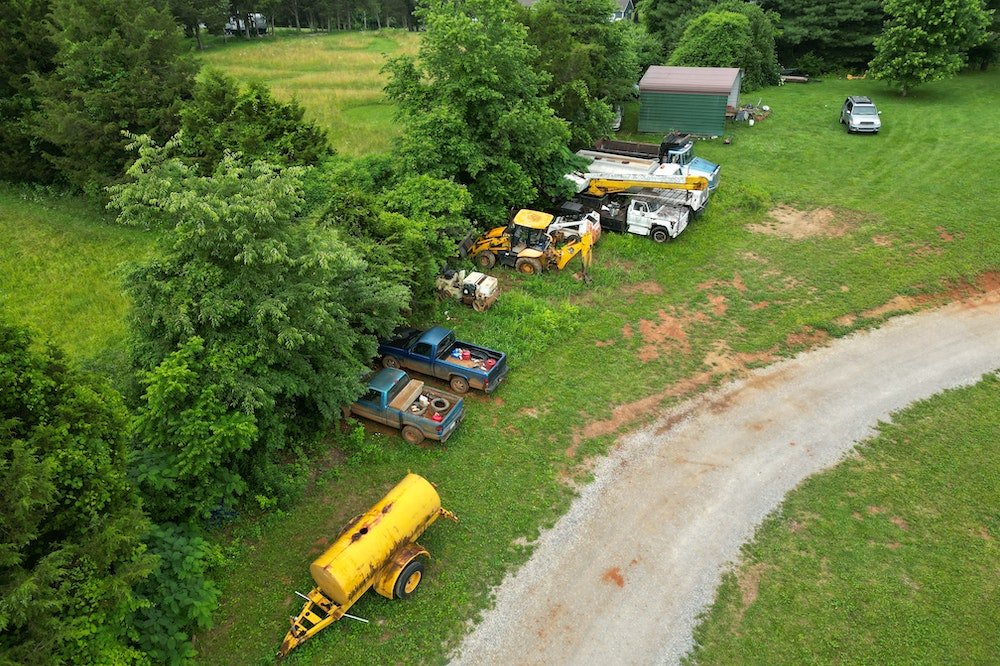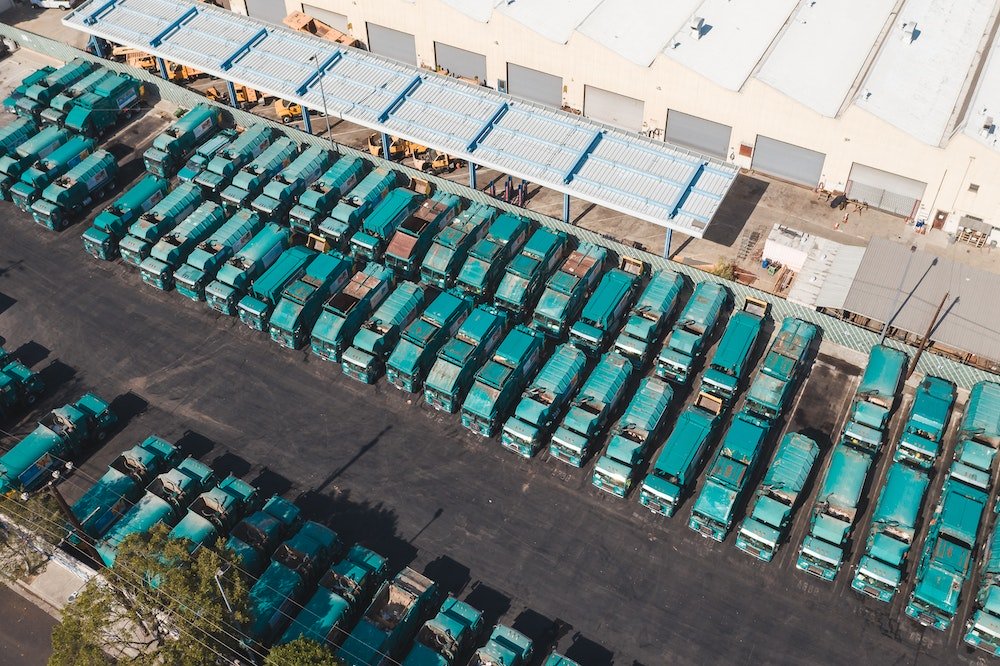
Have you ever heard about small-scale semi-trucks? You’re in the right place if you’ve ever wondered about these compact powerhouses that navigate the roads with finesse.
Let’s take you on a journey through everything you need to know about small-scale semi-trucks. We’ll look at their features and benefits and then answer some frequently asked questions about small-scale semi-trucks.
Fasten your seatbelts and get ready to dive into the world of small-scale semi-trucks. Let’s hit the road!
Small Scale Semi Truck FAQs
Q1: What Is A Small-Scale Semi-Truck?
These are essentially smaller versions of traditional semi-trucks specifically designed for the delivery of goods. Even with their smaller size, they still serve the vital purpose of hauling cargo. These trucks feature cabs and trailers but are designed to be more compact and maneuverable than full-size semis.
Q2: What Is The Size And Weight Range Of A Small-Scale Semi-Truck?
The size and weight of mini semi-trucks can differ, but they are smaller and much lighter than full-size semis. A small semi-truck can measure from 20 to 26 feet while weighing between 10 000 to 26 000 pounds.
Q3: What Are The Advantages Of Using A Small-Scale Semi-Truck?
Buying a semi-truck for your business will have great advantages, including the following:
- Increased maneuverability: Small-scale semis can navigate tighter spaces and more congested areas than larger trucks.
- Lower operating costs: They typically have better fuel efficiency and lower maintenance costs.
- Easier parking and storage: Their smaller size makes finding parking spaces and storage areas generally easier.
- Accessibility to smaller locations: They can access sites where larger trucks may have difficulty reaching.
Q4: What Are The Common Uses For Small-Scale Semi-Trucks?
Small semi-trucks are commonly used for various purposes, including the below.
- Local and regional deliveries: They are ideal for shipping goods within a specific area or region.
- Last-mile logistics: Small-scale semis can efficiently deliver goods to their final destinations in urban and residential areas.
- Specialty cargo transport: They can be used for hauling specialized cargo, such as refrigerated goods or hazardous materials, within a smaller radius.
Q5: What Is The Average Fuel Efficiency Of A Small-Scale Semi-Truck?
How well small semi-trucks use fuel depends on things like the type of engine, how heavy the truck is, and how well it moves through the air. But, they generally offer better fuel efficiency compared to larger semis due to their smaller size and lighter weight. On average, small-scale semi-trucks can achieve around 7 to 12 miles per gallon.
Q6: What Are The Licensing Requirements For Driving A Small-Scale Semi-Truck?
Different places have different rules about licenses, so it’s essential to check the regulations in your area. You’ll need a commercial driver’s license (CDL). You may also require additional certifications for specific types of cargo, such as hazardous materials.
Q7: Can A Small-Scale Semi-Truck Tow A Full-Size Trailer?
Yes, small-scale semi-trucks are designed for towing standard trailers and cars. However, ensuring that the trailer is compatible with the truck’s towing capacity and hitch configuration is crucial. How much a small semi-truck can pull depends on how it was built and what its specs are.
Q8: How Much Payload Can A Small-Scale Semi-Truck Carry?
Payload capacity can vary depending on the model and configuration of the small semi-truck. Usually, they can carry items anywhere from 5 000 to 15 000 pounds. It’s crucial to consult the manufacturer’s specifications and adhere to legal weight limits set by authorities.
Q9: Are There Any Limitations Or Disadvantages To Small-Scale Semi-Trucks?
While small semi-trucks offer several advantages, they also have some limitations, including:
- Limited cargo capacity: Compared to full-size semis, small-scale trucks have lower payload capacities, limiting the amount of cargo they can carry.
- Reduced long-haul capabilities: They are more suited for short to medium-distance trips rather than long-haul journeys.
- Lower visibility: Due to their smaller size, small-scale semi-trucks may have reduced visibility for the driver, requiring extra caution on the road.
Q10: Are There Different Types Of Small-Scale Semi-Trucks Available?
Yes, different types of small-scale semi-trucks are available to suit various needs. Some models are specifically designed for local deliveries. In contrast, others may be optimized for specific industries, such as food and beverage distribution or specialized cargo transport. Manufacturers offer a range of options with varying features and specifications to meet particular requirements.
Q11: What Are The Main Differences Between A Small-Scale Semi-Truck And A Full-Size Semi-Truck?
As the name suggests, a small semi-truck is smaller and lighter than a full-size one. It is also harder to turn and can’t carry as much. You’ll find small-scale trucks are more compact and lightweight.
They offer increased mobility, making them better suited for navigating tight spaces and urban areas. They typically have a lower payload capacity compared to full-size semis.
Q12: Are There Any Regulations Specific To Small Trucks?
Regulations for small semi-trucks can vary by jurisdiction. It is essential to familiarize yourself with local laws regarding licensing, weight limits, and any specific requirements for operating small-scale semi-trucks in your area.
Q13: What Type Of Engines Do Small-Scale Semi-Trucks Typically Have?
Small lorry engines can be powered by diesel, gas, natural gas, or even electricity. The type of engine can change based on who made the truck and what model it is.
Q14: Can Small Trucks Be Customized For Specific Purposes?
Yes, small semi-trucks can often be customized or fitted to meet your specific needs. Depending on your manufacturer, you can order customizations like specialized cargo compartments, refrigeration units, or other modifications to accommodate particular industries or cargo types.
Q15: What Safety Features Are Typically Found In Small Trucks?
Small semi-trucks have the same safety features you’ll find in their bigger cousins. Safety features may include advanced braking systems, stability control, and even lane departure warning. Some boast blind-spot monitoring and collision mitigation systems. Remember, the specific safety features depend on the manufacturer and model.
Q16: How Long Can A Small Truck Be Expected To Last?
The lifespan of a small semi-truck depends on factors such as maintenance, usage, and operating conditions. If you look after your small-scale semi-truck, it can often stay in service for 15 years or longer!
Q17: Are There Any Incentives Or Benefits For Using Small-Scale Semi-Trucks?
In certain regions, you might find incentives or benefits to encourage using small semi-trucks. These could include incentives for electric or alternative fuel-powered trucks, tax credits, or grants promoting efficient and eco-friendly transportation.
Q18: Can Small-Scale Semi-Trucks Be Financed Or Leased?
Absolutely! You can find semi-trucks for sale with financing. You can lease semis through various financial institutions and truck dealerships. Explore different options and terms to sign up for the best one for your needs.
Final Thoughts
We’ve explored the world of small semi-trucks, covering their compact size, increased maneuverability, and versatile applications.
These vehicles offer benefits such as lower operating costs and accessibility to confined areas and play a crucial role in localized transportation and last-mile logistics.
Check out Mission Financial Services for more information on how to join in the rapidly expanding lorry-driving sector. You’ll soon be cruising the roads in no time!






